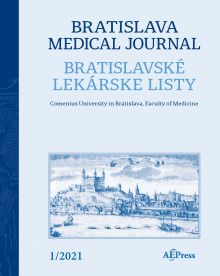Journal info
|
||||
Select Journal
Journals
Bratislava Medical Journal 2024 2023 2022 2021 2020 2019 2018 2017 2016 2015 2014 2013 2012 Ekologia - Ecology Endocrine Regulations General Physiology and Biophysics Neoplasma Acta Virologica Studia Psychologica Cardiology Letters Psychológia a patopsych. dieťaťa Kovove Materialy-Metallic Materials Slovenská hudba 2025Webshop Cart
Your Cart is currently empty.
Info: Your browser does not accept cookies. To put products into your cart and purchase them you need to enable cookies.
Bratislava Medical Journal Vol.114, No.6, p.333-336, 2013 |
||
| Title: Wildflower (Hyoscyamus reticulatus) causes QT prolongation | ||
| Author: S. Aslan, Z. Cakir, M. Emet, E. Aksakal, A. Akoz, M. Uzkeser | ||
| Abstract: Introduction: In the environment, there are hundreds of poisonous and injurious plants with a wide variety of toxicity. Among all plants with anticholinergic effect, Hyoscyamus reticulatus is a species whose clinicopathological effects have been poorly described in literature. The paper is especially aimed at drawing attention to the possibly fatal syndrome of prolonged QT, as well as to clinical and laboratory changes in six members of a single family poisoned with this plant. Cases: Six female patients aged from 19 to 49 presented to our emergency room with a suspicion of being poisoned after having ingested a plant known as ‘the mad axe plant’ (Hyoscyamus reticulatus). At least one of anticholinergic symptoms including flushing, mydriasis, dry mouth and tachycardia was present in all of the patients. In addition, different levels of agitation were observed in four of the patients. A euphoric emotional state was present in two patients. The corrected QT distances were found to be prolonged in three of the patients. Discussion and conclusion: Based on economical, social and cultural reasons, it is a very common habit in our country, especially in our region in spring and summer months, to consume some plants growing spontaneously in rural areas as food. Intoxication with Hyoscyamus reticulatus is a plant poisoning that is poorly described in literature. Its classical symptoms are predominantly anticholinergic. Although it is commonly self-limited and can be corrected with close observation and supportive treatments, it should be kept in mind that the prolongation of QT interval can accompany the symptoms of poisoning with this plant (Tab. 1, Fig. 3, Ref. 19). |
||
| Keywords: emergency, wildflower, poisoning, QT prolongation, Hyoscyamus reticulates. | ||
| Year: 2013, Volume: 114, Issue: 6 | Page From: 333, Page To: 336 | |
| doi:10.4149/BLL_2013_070 |
||
|
|
 download file download file |
|

